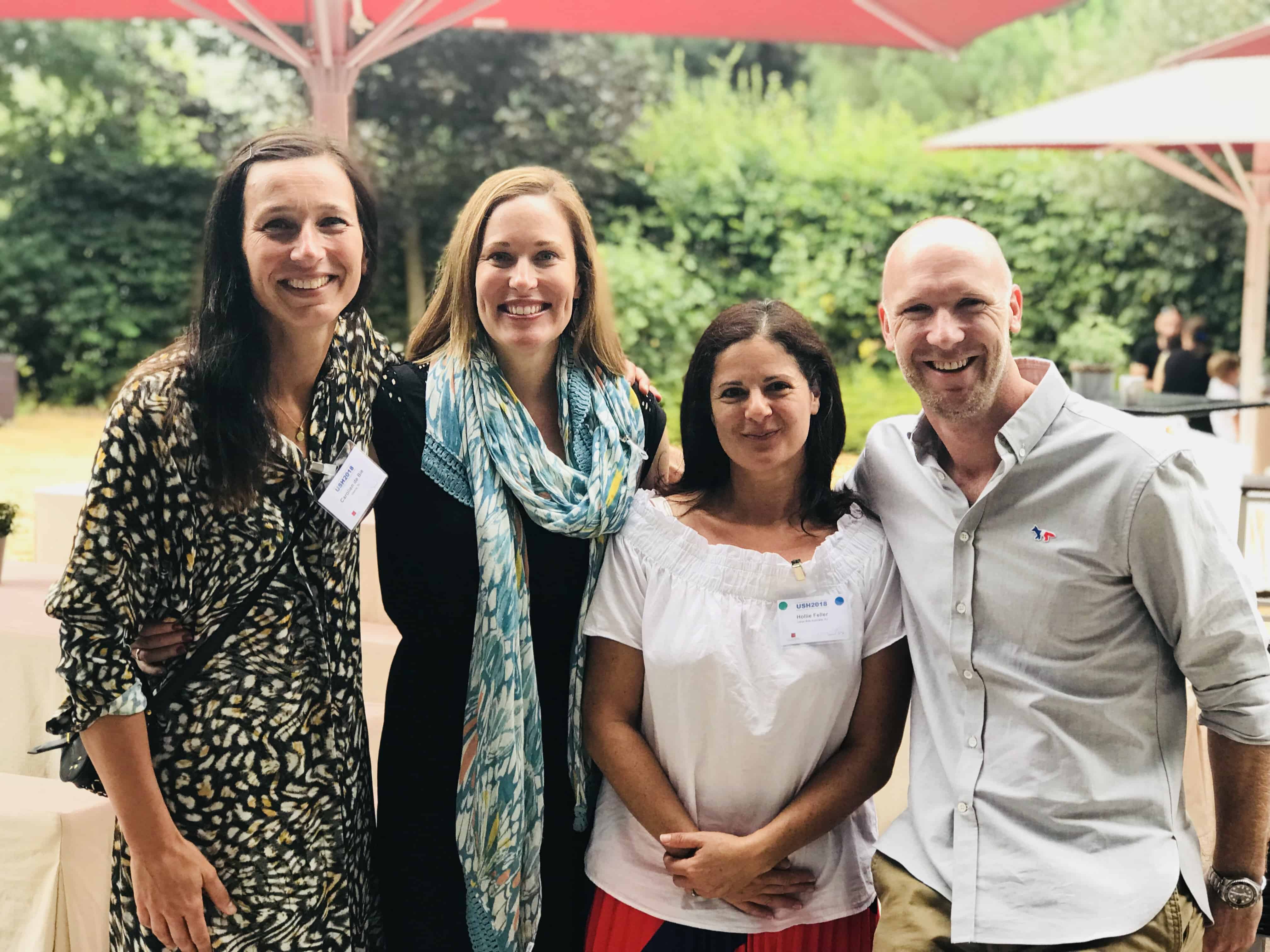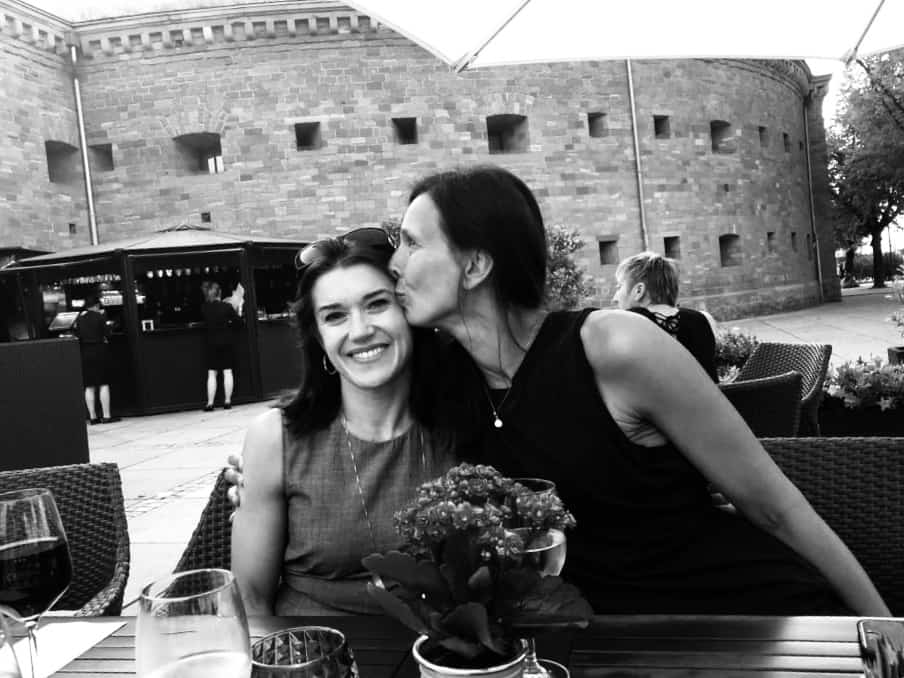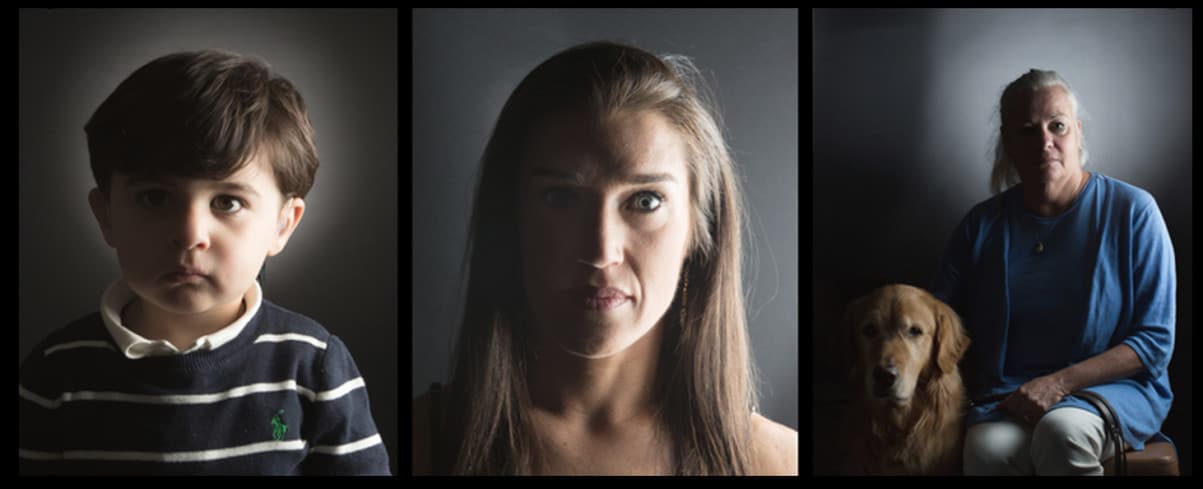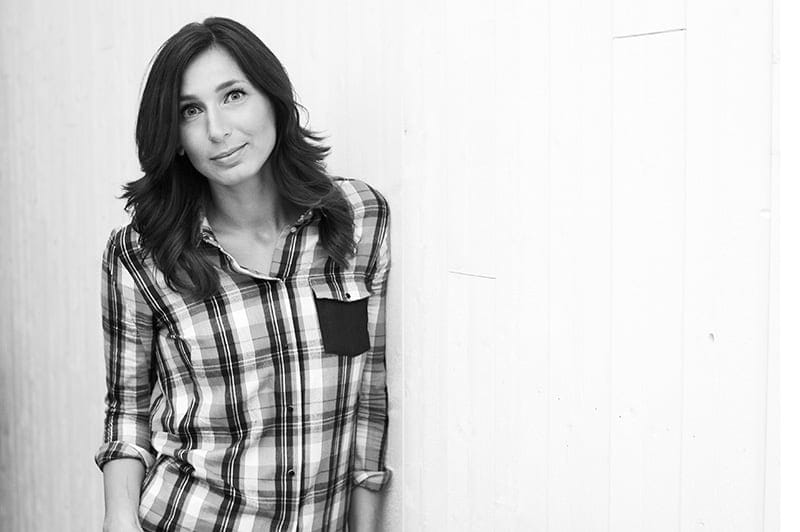We can only fight this if we are together
Mark Dunning (chairman Usher Syndrome Coalition) opened the symposium with a very powerful speech (his daughter Bella has Usher type 1b, just like Jackson). ‘We are not here to cure deafness or blindness, we are here to prevent social isolation and to build an Usher community’. Over 200 people sat in that room and we all felt connected, because we all have Usher in our lives. Over 400,000 people worldwide are affected by Usher Syndrome, the coalition is in touch with only 1 to 2% of them. Why is it important to have this community and to be in touch with as many Usher patients as possible? Because we can only fight this if we are together. Not only on a social and emotional level, but also to push medical research.*
About that research
There is a lot happening, on all levels, for all subtypes of Usher syndrome. Compared to the previous symposium (4 years ago) the increase was substantially. I was looking forward to hearing more about the clinical trial ‘UshStat’ for Usher 1b. Bad news, it’s currently on hold since one of the patients suffered from inflammation. Professor Isabelle Audo (France) assured me that they will get the trial back on track before the end of the year. In this trial 9 Usher 1b patients (with advanced RP) have been injected with a viral vector for MYO7A gene delivery, once under only one retina (so only one eye is treated). It is still too early to say anything about the results of this corrective gene therapy.
On the scientific days there was also a presentation by professor Alberto Auricchio (Italy). His team is preparing for a clinical trial to test dual AAV in the retina of patients with Usher 1b. As you might have heard before, the retina is an attractive target for gene therapy with adeno-associated viral (AAV) vectors. However, the gene mutation causing Usher 1b is too big for the AAV cargo capacity. Alberto Auricchio has developed a strategy based on co-delivery of two AAV vectors each carrying one of the two halves of a large gene. They have already demonstrated that this is effective in animal models of commonly inherited blinding conditions like Usher 1b. Since I was not present the day of his presentation, I did not have the chance to ask more about the timings of this particular trial.
Claes Möller is a professor from Sweden, he has been researching syndromic deafness and deafblindness for years, with a special interest in Usher syndrome type 1 and 2. I had the pleasure of meeting him last year at the Usher symposium in Holland. Just like then, his words made me cry, why? Because the last 10 years he has been focusing on the psycho-social research in deafblindness, and the results aren’t pretty. And that’s hard to hear (even if you hear it for the second time). The number of attempted suicides amongst people with Usher syndrome is high, so are the number of people dealing with depression, anxiety and loneliness. His advice? Get an early diagnosis, push for genetic testing so you know exactly what you are dealing with. It seems that people who have known early about their diagnosis are better at dealing with it. It helps to have peers, and learn sign language as it is an invaluable tool.
We can be autonomous, independent and happy
I really appreciated the podium discussion at the end of the day, where 2 scientists (Isabelle Audo and Claes Möller) and 3 Usher patients (a teenage boy and girl, 1 female adult) shared the stage. Mark Dunning prepared some questions for them, to show that scientists and patients are not that different and to close the gap between them. Very clever and very sincere. Here are some of the questions and answers that really stuck with me:
- What about having Usher worries you?
The 2 teenagers were very clear: ‘We try not to worry, a cure is coming.’ The adult woman worried about being able to see her children grow up.
- What about having Usher frustrates you?
The perception of other people is a cause for a lot of frustration. ‘That people think I am (already) blind and start grabbing my arm’ or ‘Don’t treat us as if we can’t do anything ourselves.’ No need for pity ‘We can be autonomous, independent and happy.’ or self-pity for that matter ‘I try not to live my life with the information that one day I will go blind.’
- What about having Usher makes you happy?
‘Nothing’ said the young man. The young girl was happy that her friends treated her ‘normally’, that Usher was a part of her but not so much a topic they would talk about. The female adult was proud of what she had accomplished on her own, to study, travel, marriage and have kids. One of the professors expressed her admiration on what people with Usher can achieve, win a gold medal at the Paralympics for example.
- What can we do besides raise money?
‘Organize yourselves and make sure there is a support system for new Usher patients’. The funding for research for deafblindness can’t compete with cancer or diabetes. We are smaller in numbers so we have to stand together.
- Would you be willing to participate in a clinical trial?
For all patients: ‘hard to say, would need more information about the risk and benefit involved’. In the end it’s all about trust. About knowing the researchers and scientists involved. That’s the beauty of an event like this, that we have the opportunity to meet these people and get all the information first hand.
- Would you be willing to participate in a clinical trial not for your own benefit but for others in the community?
All patients were reluctant. In most cases the intention of a safety trial is not to improve a condition but to test and see if it’s dangerous. The people who currently are participating in a clinical trial are real heroes.
Tell your kids about the diagnosis as soon as possible, and share it with the people around them. But don’t bring it up unless the child asks for it. When you bring the news, don’t be too emotional as your kid will feel partly to blame. Be positive, be honest, listen. Rationalize instead of hiding. ‘Yes you are clumsy, it’s because of Usher.’ Trust your children that they will be fine, not saying anything about it only creates anxiety. Best advice we got: ‘your child has the potential to do great things!’
Some of you I have never met, still I feel more related to most of you in this room than to my own family


Thank you: Usher Syndrome Coalition, UsherKids Australia, Usher Syndrome Society, Rebecca Alexander, Usher Initiative Austria, NoisyVision, Anne Schueler, Maike en Teun, Jeroen en Esmeralda, Qais Khan, Molly Watt and all the others making this event possible and so valuable. #ushfamily
* the USH Trust is the largest international Usher syndrome registry in the world, if you haven’t registered already, please do so here






Many thanks for this summary Caroline ?
you’re more than welcome!